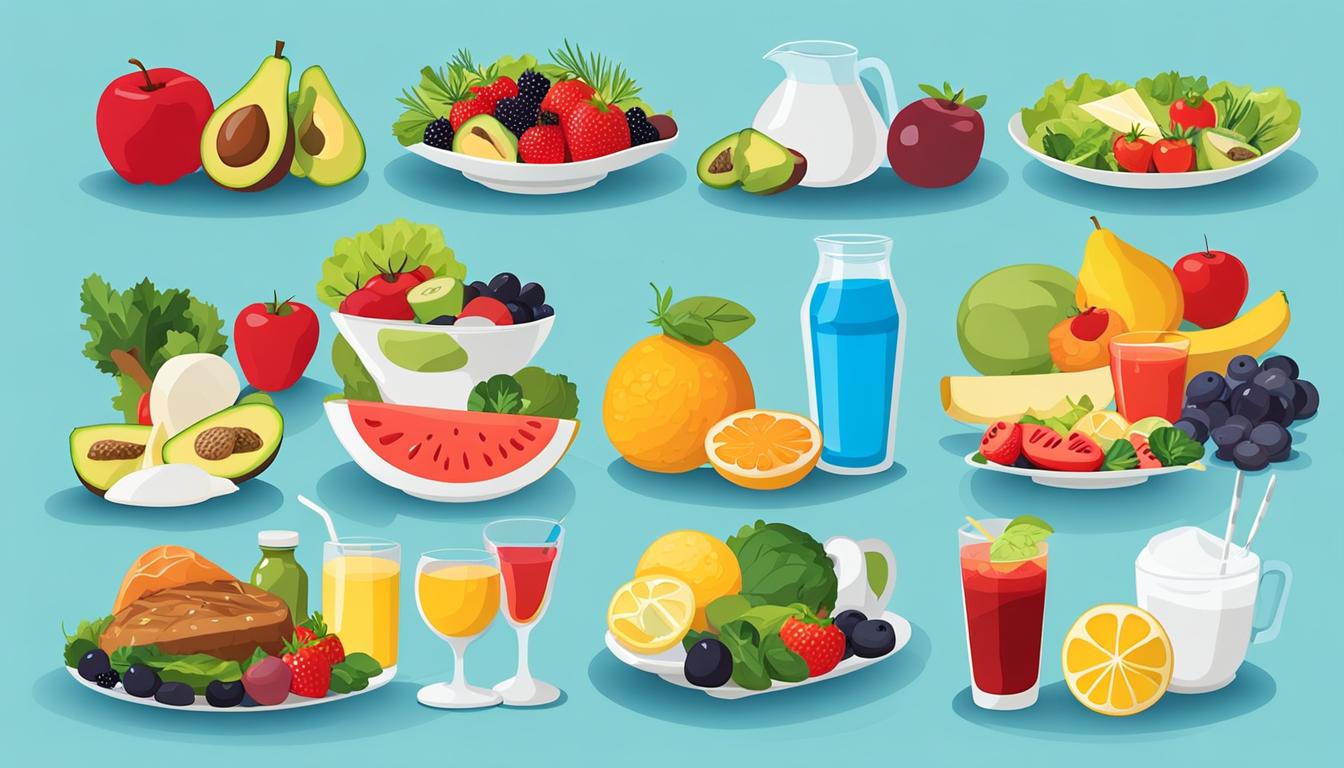A healthy diet is important at every age, but in the 50+ it plays an even more important role. Because with age, the body and metabolism change, which can lead to various challenges.
In this blog post you will find concrete tips on how you can structure your diet in your 50s to stay fit and healthy.
Why nutrition is so important for people over 50
As you age, your metabolism slows down, which can make you gain weight more easily. Muscle mass decreases while body fat percentage increases. This can lead to various health problems such as: E.g.:
- Overweight and obesity
- Cardiovascular diseases
- Diabetes
- Osteoporosis
- Digestive problems
- Fatigue and difficulty concentrating
A healthy diet can help reduce these risks and improve overall health.
Concrete tips for a healthy diet for people over 50
1. Eat a balanced and varied diet:
Make sure you get all the important nutrients. This includes:
- Protein: Protein is important for maintaining muscle mass. Good sources of protein include lean meat, fish, eggs, dairy products and pulses.
- Carbohydrates: Carbohydrates provide energy. Choose complex carbohydrates such as whole grains, fruits and vegetables.
- Fats: Healthy fats are important for heart health and the brain. Good sources of fat include olive oil, canola oil, nuts and avocados.
- Vitamins and minerals: Vitamins and minerals are important for regulating metabolism and strengthening the immune system. Good sources of vitamins and minerals include fruits, vegetables, whole grain products and pulses.
2. Pay attention to the portion size:
At the age of 50+, it is important to pay attention to portion size to avoid excessive intake of calories. – Your metabolism slows down and does not need that much energy anymore.
3. Drink enough water:
Water is important for all functions of the body. Make sure you drink at least 2 liters (~ 2 quarts) of water every day. – More is better!
4. Eat regularly:
Regular meals help stabilize blood sugar levels and avoid food cravings. – Food cravings can be the result of rapidly falling blood sugar levels. To prevent this, it is primarily important to keep blood sugar levels at a constant level. A balanced diet and regular meals are particularly helpful here.
5. Less Sugar and Salt:
Too much sugar and salt can lead to various health problems. Reduce sugar and salt consumption in your diet. – I.E. anyone who drinks drinks with a lot of sugar, is more likely to become overweight and develop type 2 diabetes.
6. More Fiber:
A higher fiber intake is associated with a reduction in the risk of all-cause mortality (mortality risk) and lowers the risk of dying from cardiovascular diseases.
Increased fiber intake shows protective effects on cardiovascular diseases (coronary heart disease, stroke) as well as type 2 diabetes mellitus, obesity, total and LDL cholesterol concentrations, hypertension, prostate breast and other cancers. (see: BMC: Higher insoluble fiber intake is associated with a lower risk of prostate cancer: results from the PLCO cohort)
7. Healthy snacks:
Choose healthy snacks like fruits, vegetables, nuts or yogurt. Avoid unhealthy snacks like chips, chocolate or cookies.
8. Cooking on your own:
Cooking yourself is the best way to eat healthily. This way you can decide for yourself which ingredients you use.
9. Eat consciously:
Take time to eat and enjoy it consciously. Avoid eating on the side or in front of the TV.
10. Movement:
In addition to a healthy diet, exercise is also important to stay fit and healthy.
Bonus Tip:
11. Reduce your alcohol consumption
You should only drink alcohol rarely and only a little. It’s not just a lot of calories. Digestion is also slowed down by alcohol, nutrients are less easily absorbed by the body and fat is harder to break down – everything that stands in the way of a healthy diet after 50.
Why these tips are particularly relevant for the 50+ generation
The tips presented in this blog post are specifically relevant to the Generation 50+ as they are tailored to the specific needs of this age group.
Key points are:
- Balanced and varied diet: In those 50+, it is particularly important to consume all the important nutrients in order to counteract the body’s age-related changes.
- Pay attention to portion size: In those 50+, it is important to pay attention to portion size to avoid excessive calorie intake and boost metabolism.
- Drink enough water: Water is important for all functions of the body and helps slow down skin aging.
- Eat regularly: Regular meals help stabilize blood sugar levels and avoid food cravings.
- Less sugar and salt: Too much sugar and salt can lead to various health problems, which are particularly common in those over 50.
- More fiber: Fiber is important for digestion and keeps you full for a long time. Make sure you consume enough fiber every day.
See, it’s not that complicated to eat heathy, and it also does not mean to torture yourself with a “diet” where the only thing you are looking forward to is it’s end. That’s why the don’t work in the long run anyways.
In the future I will post some healty and tasty receipies for you to cook along.
So, stay tuned
Your’s, Michael
